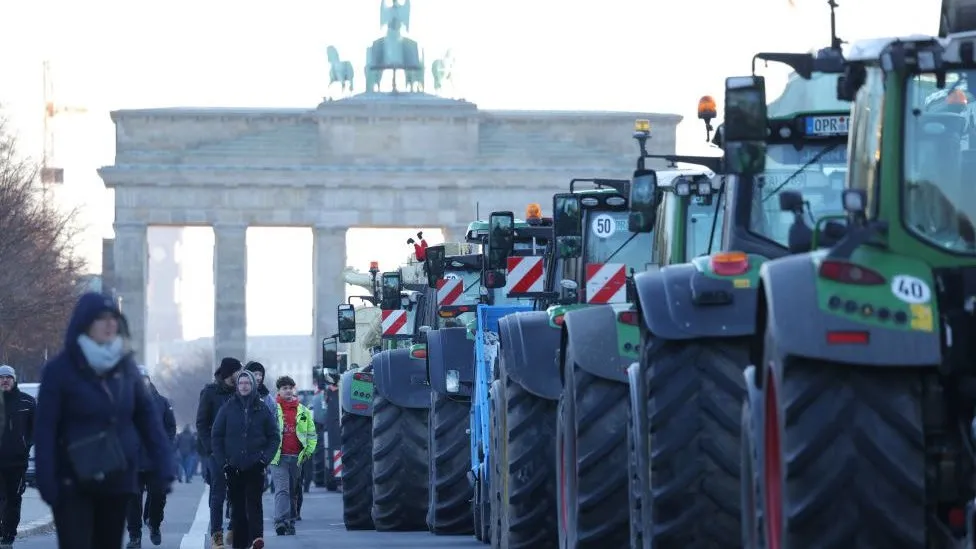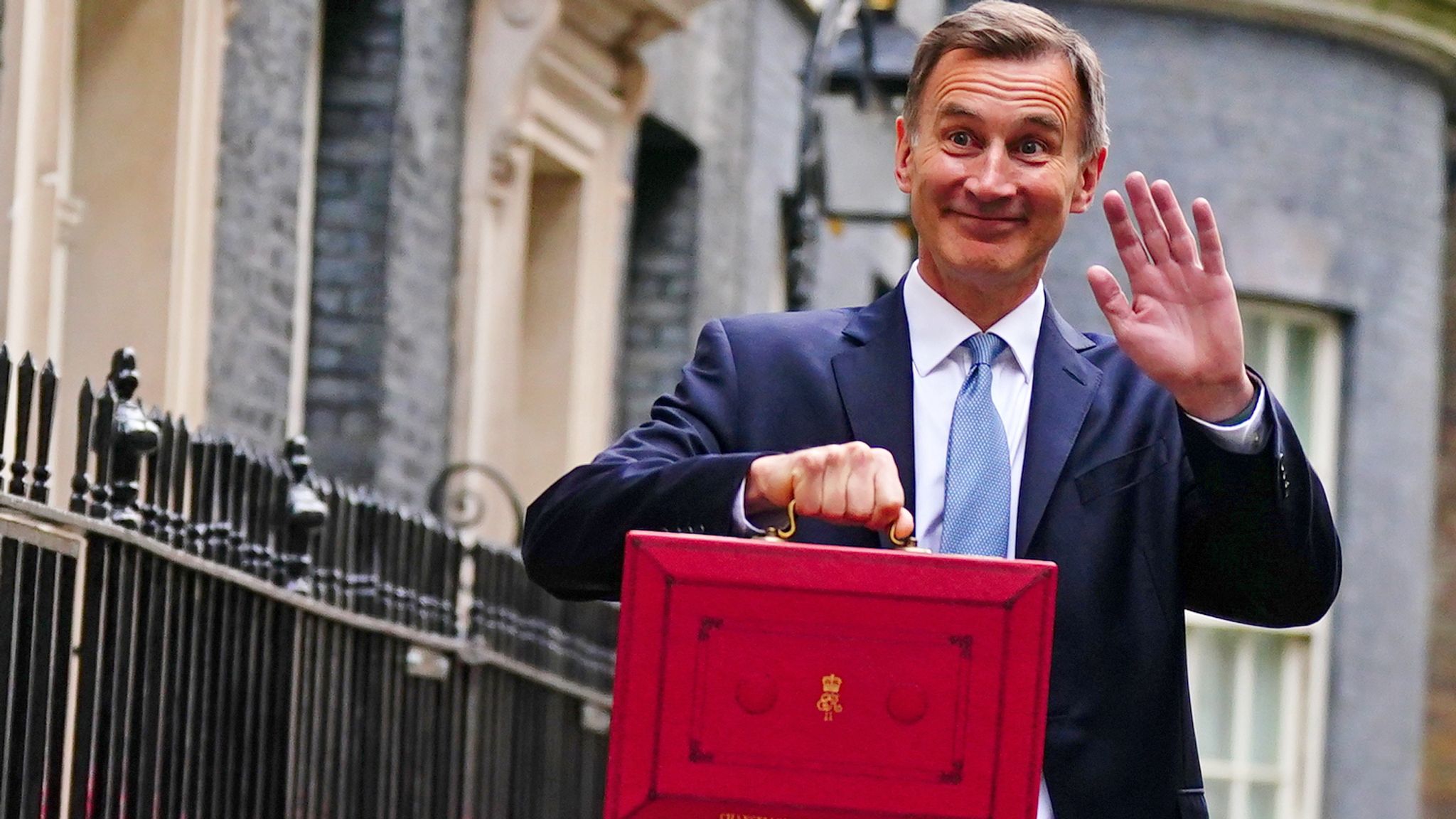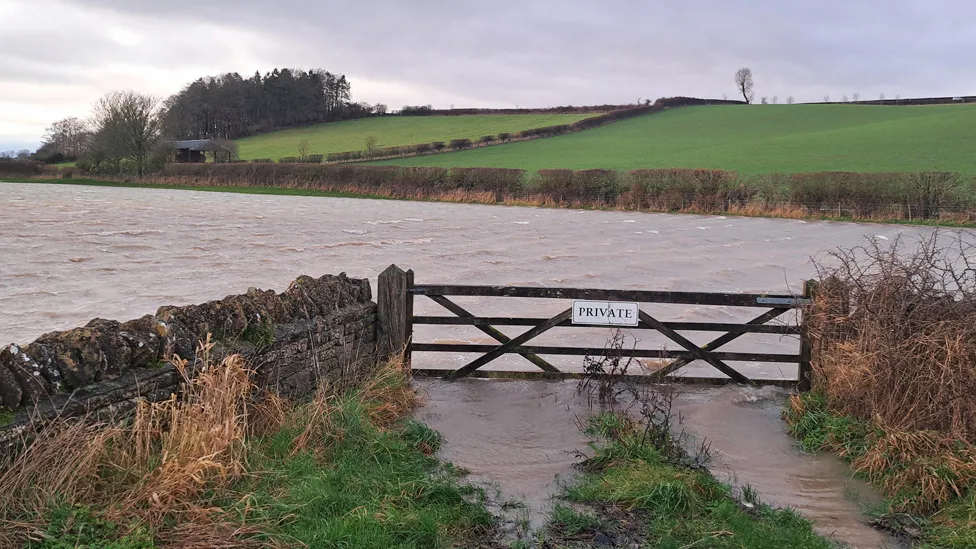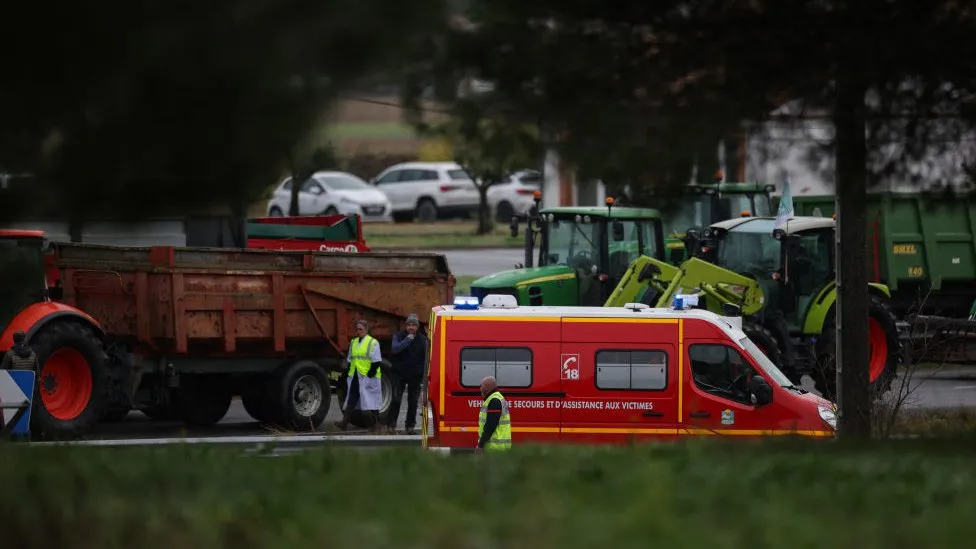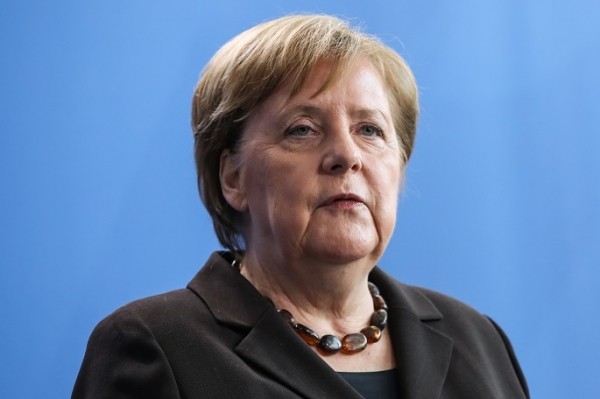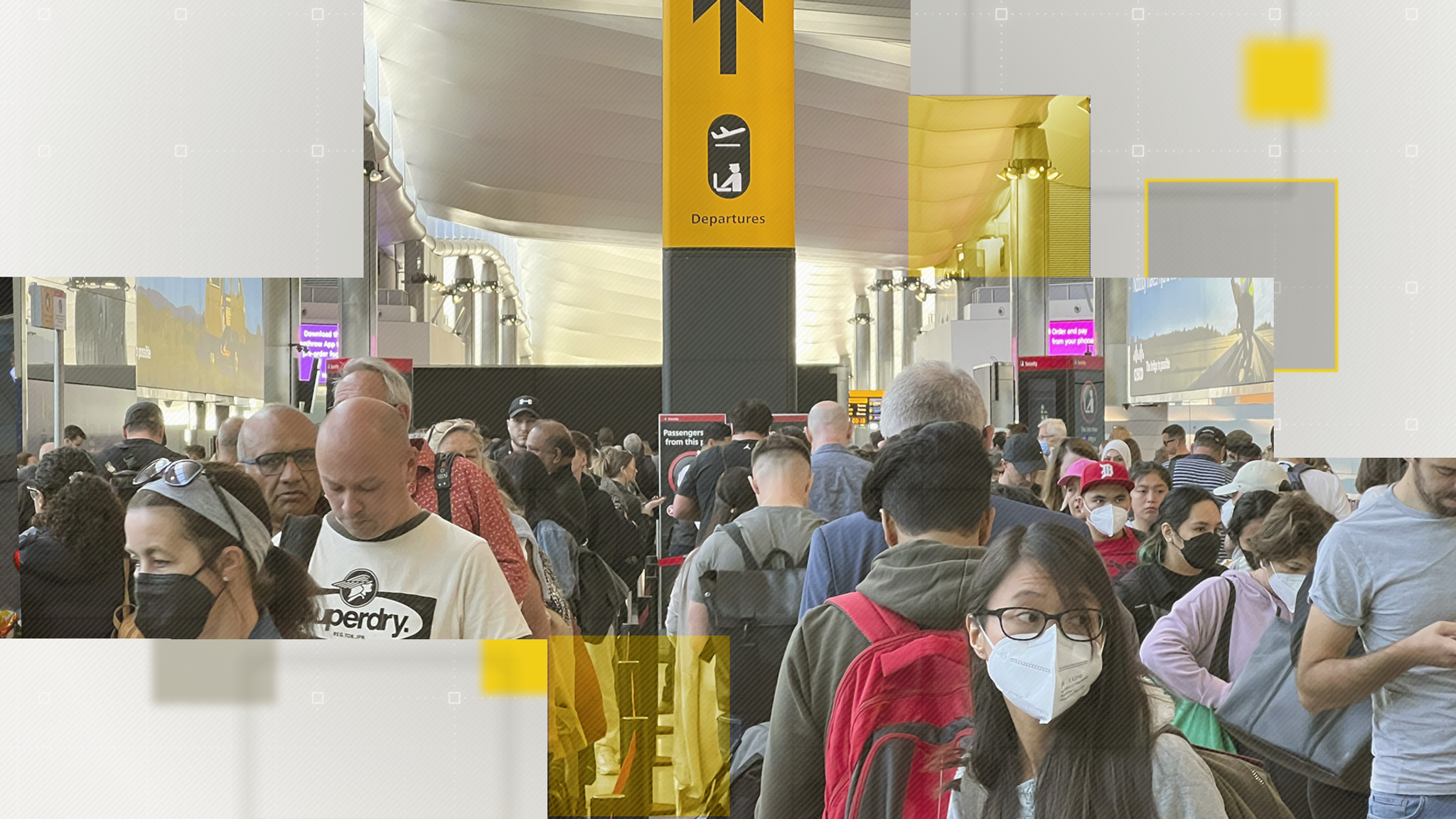German farmers blockade Berlin with tractors in subsidy row
There are also reported blockages in Baden-Württemberg, North Rhine-Westphalia, Saxony and Bavaria.
The subsidy cuts were designed to fix a budget crisis after a court ruled the government’s 2024 budget was illegal.
But the cuts have backfired and there are fears the ensuing row could feed the far right’s popularity.
Reacting to the blockades, Interior Minister Nancy Faeser warned that stopping people from going to work, school or to see a doctor “will cause anger and disagreement.”
But farmers are enraged and their association, DBV, has called on the government to scrap all plans for cutting farmer’s subsidies.
“Otherwise the supply of high quality food stuffs is jeopardised,” warned DBV head Joachim Rukwied in a radio interview.
Ministers have been scrambling to plug a financial blackhole of tens of billions of euros after a bombshell ruling in November by Germany’s constitutional court, which declared the government’s budget illegal.
However subsequent proposals to end farmers’ tax breaks on agricultural diesel have already been watered down, with the change now set to be phased in over time. The government also dropped plans to abolish preferential treatment in vehicle tax.
But it hasn’t assuaged farmers’ anger and, in heated scenes, a group of protesters even prevented the Vice Chancellor Robert Habeck from disembarking from a ferry last week.
The demonstration drew widespread condemnation and sparked fresh fears about the radicalisation of political debate in Germany.
But the co-leader of the far right Alternative for Germany (AfD) party, Alice Weidel, said that the episode showed that the vice chancellor was “no longer taken seriously”.
“And instead of seeking dialogue, he’d rather flee on a ferry,” she wrote.
The AfD has been hitting record highs in the polls, consistently scoring above the three governing parties.
There are frequent reports of infighting and barely-disguised tensions within Germany’s ruling traffic light coalition of Social Democrats, the Greens and Free Democrats.
Crucial regional elections later this year will test at least part of the country’s mood with three eastern states – Saxony, Brandenburg and Thuringia – going to the polls.
Planned train drivers strikes will also pile further pressure on the coalition later this week.
Germany’s GDL union said on Sunday that it would call on members to walk out from Wednesday as part of a wage dispute with rail operator Deutsche Bahn.
As the tractors pull up in central Berlin, it is an inauspicious start to the year for Chancellor Scholz’s government and comes alongside predictions of lacklustre economic growth for a country often described as the EU’s “powerhouse”.

